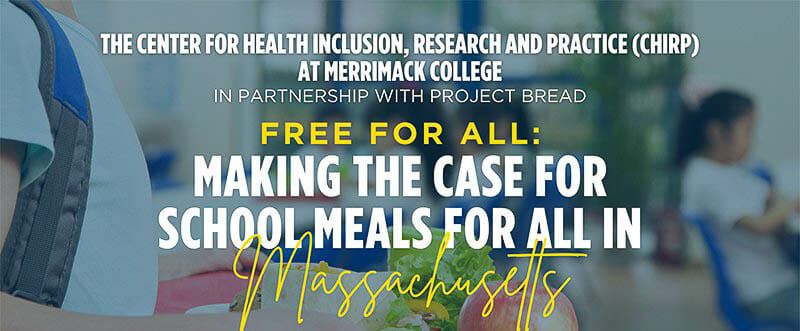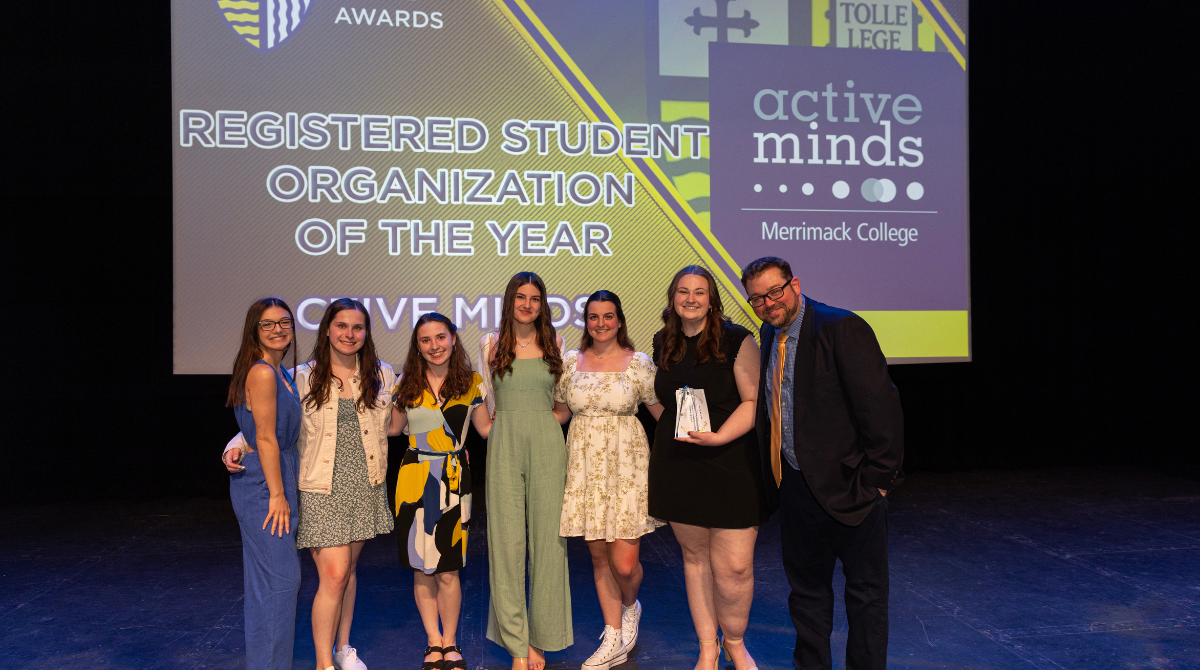From social to nutritional to administrative, the benefits from permanently adopting universal free school meals in Massachusetts public schools are expansive, agreed a panel of experts at Merrimack College’s “Free for All – Making the Case for School Meals for All in Massachusetts” virtual event.
Sponsored by the College’s Center for Health Inclusion, Research and Practice, in partnership with Project Bread, the discussion on April 14 called on the state to extend the universal free school meals program that was launched during the pandemic.
The discussion was moderated by State Rep. Alex Vargas, D-Haverhill, who has co-sponsored a bill in the Massachusetts Legislature to make free school meals permanently available. The panel consisted of Janet Poppendieck, professor at Hunter College, City University of New York, Erin McAleer, president and CEO of Project Bread and Juliana Cohen, associate professor and director of CHIRP.
“There was an alarming increase of food insecurity among school children during the pandemic,” explained Poppendieck, author of the book Free For All: Fixing School Food in America. “Much of it was mitigated by free school meals.”
The panelists agreed making school meals free for the more than 400,000 students in Massachusetts not only erases the stigma of those meals being only for low-income children, but it also increases participation from students who are food insecure but do not financially qualify for the program.
“Students can have the best teacher in the world but they aren’t going to learn anything from them if they are hungry,” said McAleer, who shared during the event that she grew up food insecure. “We need to move forward and recognize there is no path to ending childhood hunger without universal free school meals.”
Cohen presented research conducted by her team that reviewed studies from around the world on universal free school meals and found there is no negative impact to such programs. In most cases, the meals are more nutritious than what parents would pack for children and many communities saw increased school attendance after universal free meals were implemented.
“We provide all students with textbooks and desks, we need to provide all of them with food,” Cohen said.
Making school meals free for all students would also eliminate a significant administrative burden, as school employees would not need to worry about collecting applications or keeping a record of how many free meals are served.
“We have to start viewing meals as public education,” Vargas said.
The Massachusetts House Committee on Ways and Means included in its FY23 budget proposal $110 million to extend universal free meals in Massachusetts schools for another academic year. Event attendees were encouraged to reach out to their legislators to keep the program funded not only for a year, but beyond.





